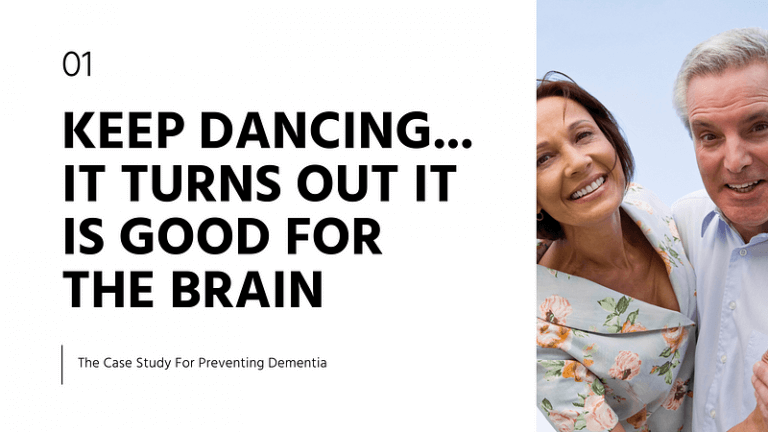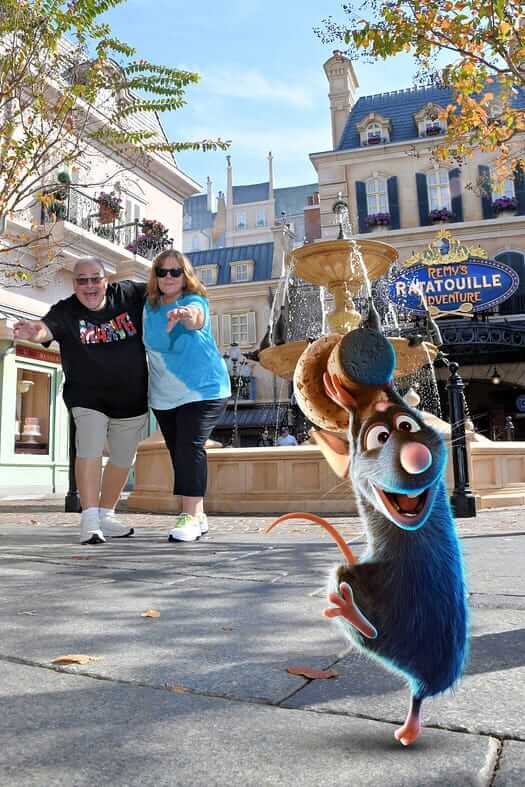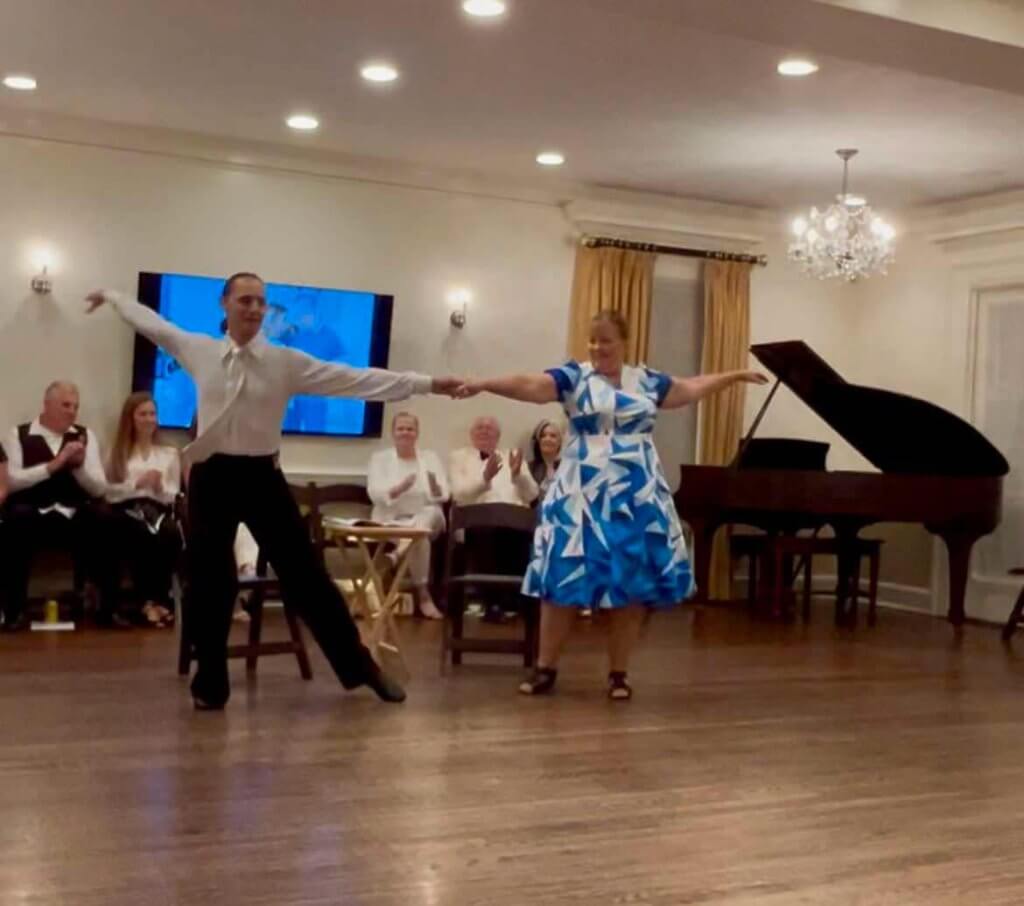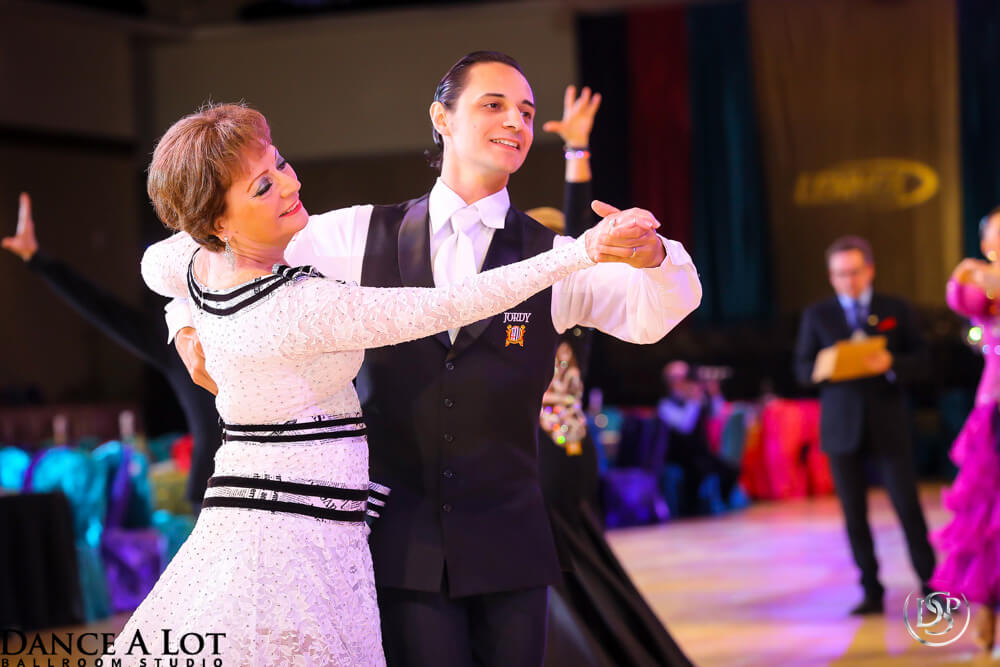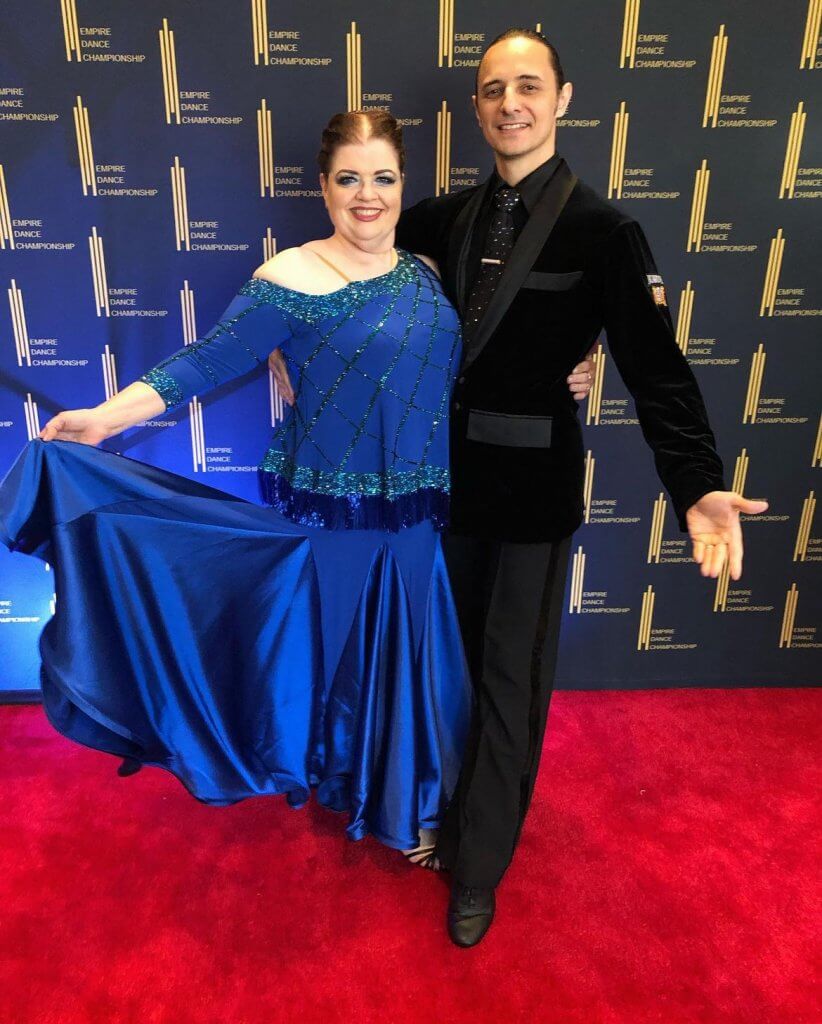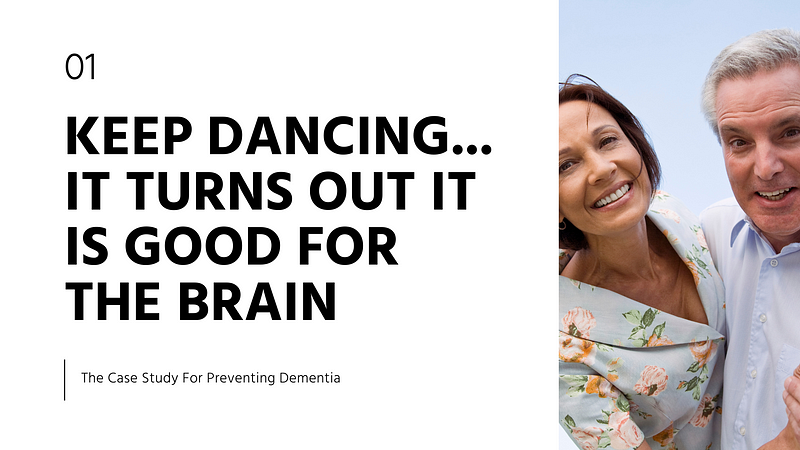
Did you know that according to the WHO:
- Worldwide around 50 million people have dementia, and there are nearly 10 million new cases every year.
- Alzheimer’s disease is the most common form of dementia and may contribute to 60–70% of cases.
- Although dementia mainly affects older people, it is not a normal part of ageing.
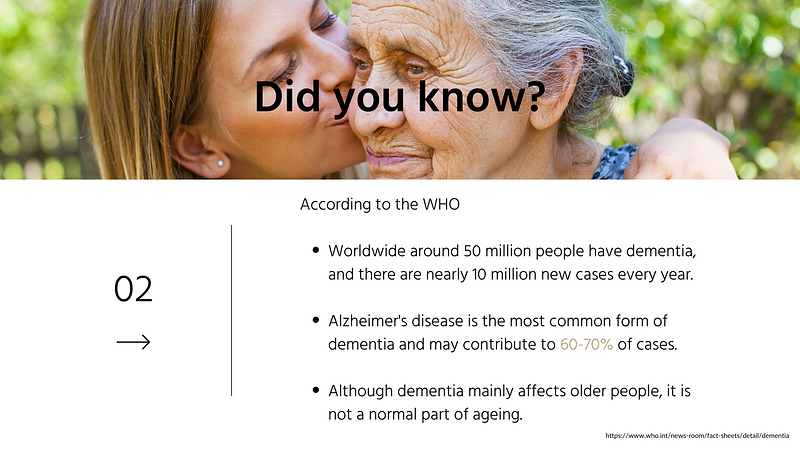
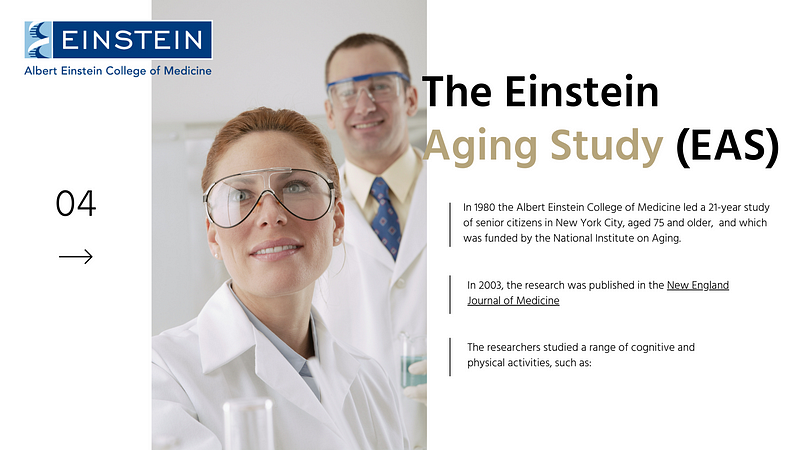
In 1980 the Albert Einstein College of Medicine led a 21-year study of senior citizens in New York City, aged 75 and older, and which was funded by the National Institute on Aging.
In 2003, the research was published in the New England Journal of Medicine
The researchers studied a range of cognitive and physical activities, such as:
6 Cognitive Activities:
- Reading Books or Newspapers
- Writing
- Crossword Puzzle Solving
- Playing Board Games or Cards
- Participating in Group Conversations
- Playing Musical Instruments
11 Physical Activities:
- Playing Golf
- Playing Tennis
- Swimming
- Bicycling
- Social Dancing
- Running
- Team Games such as Bowling
- Walking
- Stair Climbing
- Doing Housework
- Babysitting
Surprisingly, dance was the one activity that was good for the mind, significantly reducing dementia risk. Regular dancing reduced the risk of dementia by 76%, twice as much as reading.
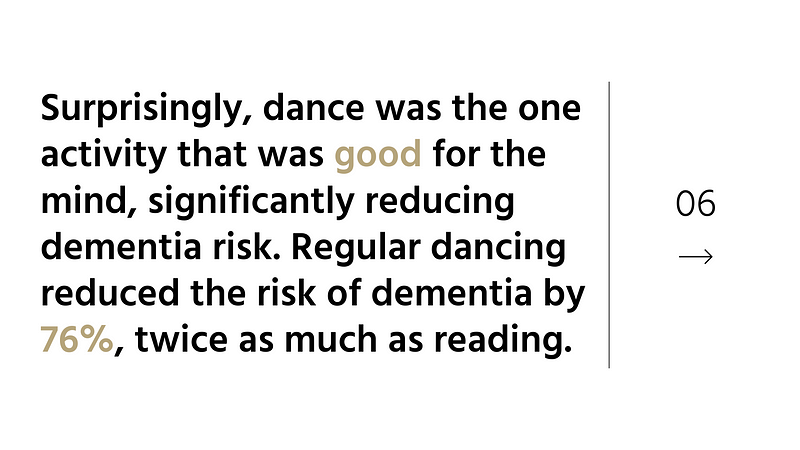
Doing crossword puzzles at least four days a week reduced the risk by 47%, while cycling and swimming offered no benefit at all.
Not all forms of dancing offer the same cognitive benefits.
Neurologist Dr. Robert Katzman said,
Another study in 2012 showed that a 10 week dance intervention helped dementia patients over 70. It was a small pilot study of 18 subjects, where ten of the dance participants showed an improvement in cognitive function and mood compared to the eight who did not dance.
Conclusion — Participation in leisure activities is associated with a reduced risk of development of dementia, both Alzheimer’s disease and vascular dementia. The reduction in risk is related to the frequency of participation.
Dance and ageing research has shown its positive impact on the neurology in healthy and dementia groups. Dance therapy could be prescribed by physicians to improve visual perception and spatial memory, an area commonly affected by dementia.
I don’t know about you, but if dancing can keep my mind healthy, as well as my body, then bring on the fast intricate footwork along with a port de bras (carriage of the arms) to match.
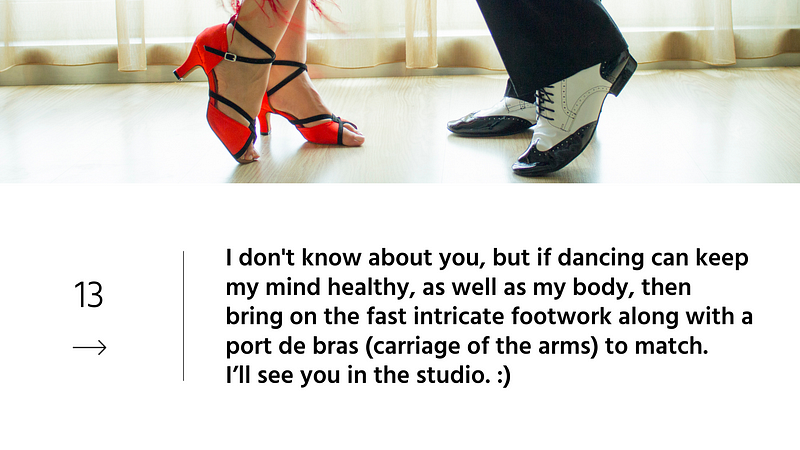
I’ll see you in the studio. 🙂
Resource: https://www.nejm.org/doi/full/10.1056/nejmoa022252

